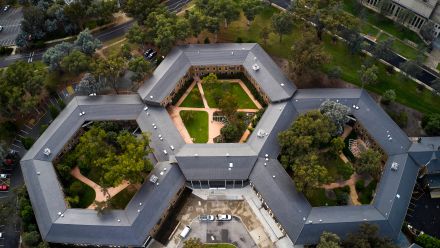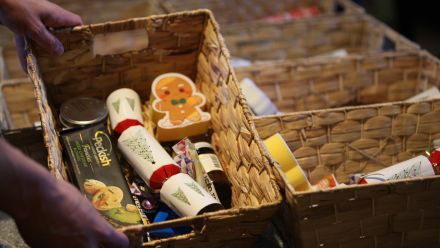Sierra Leone has the world's worst maternal mortality rate. An experienced team of ANU epidemiologists and public health physicians are working with local partners to halve maternal death rates in just three years.
A crisis in maternal health
One in 17 women die during childbirth in Sierra Leone. This is devastating for families and the entire community.
The vast majority of maternal deaths are preventable but a lack of qualified health personnel, years of civil war and the Ebola epidemic have shattered local health systems. With crisis becoming the status quo in Sierra Leone, aid agencies and governments have been unable to adequately intervene.
Halving maternal deaths
An ANU team, led by Dr Kamalini Lokuge, is working in collaboration with local communities, M茅decins Sans Fronti猫res (MSF) and the Sierra Leone Ministry of Health and Sanitation (MoHS) to deliver effective, sustainable and scalable solutions that leverage and transform existing programs.

MSF doctors are currently providing life-saving services to pregnant women and their newborns. However, long lasting change will need deeper and systemic solutions, which Sierra Leonean health staff can implement after MSF leave.
Dr Lokuge and her team are leveraging their unique model - which has proven successful in the Ebola outbreak in West Africa and in helping tackle family and sexual violence in Papua New Guinea - to build a capable local health workforce and community.
Using a rigorous evidence-based approach, they work closely with local universities to train local health personnel. This will help them to continue delivering critical solutions over the longer term, catering to the unique health challenges faced by mothers in Sierra Leone. It also ensures a sustainable impact is made from within the community.
Alastair Holberton (BEc '70), CEO of Interchange Group, is the lead donor to the program. His support was inspired by its potential to make a positive impact on the lives of thousands of people.
"The ANU research team has a unique capability of operating in Africa. When they came to me with their proposition of halving maternal death rates within three years, I immediately wanted to help in facilitating this project," said Alastair.
"It will have a profound impact by saving the lives of thousands of mothers and children. What could be more rewarding and worthwhile?"
Dr Lokuge said that philanthropic support is critical to the project's progress. "This project wouldn't happen without the support of Alastair and our other generous donors."
"There is a very high level of trust in our work, including with our partner, the Ministry of Health and Sanitation in Freetown. The research program will give us a very clear understanding of the community and the health system barriers that contribute to the maternal deaths, and much more importantly, how we can support local communities and health workers to fix them."


